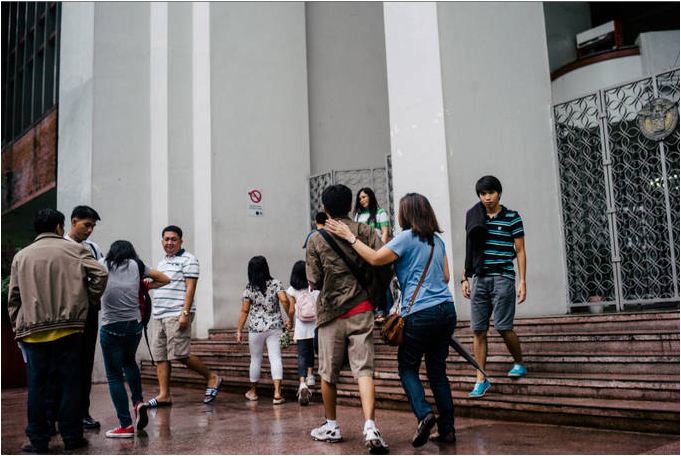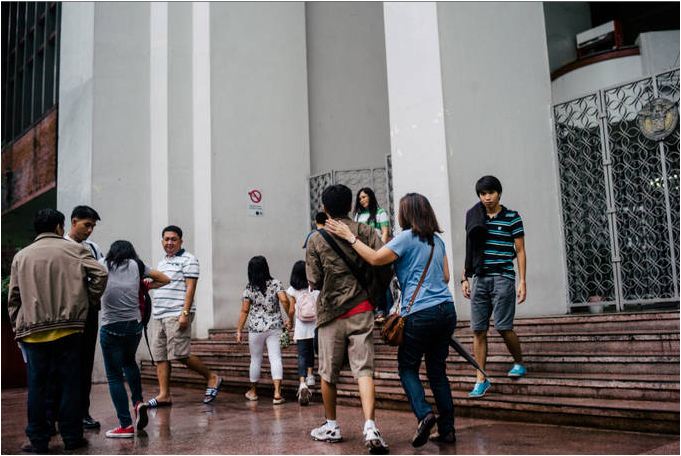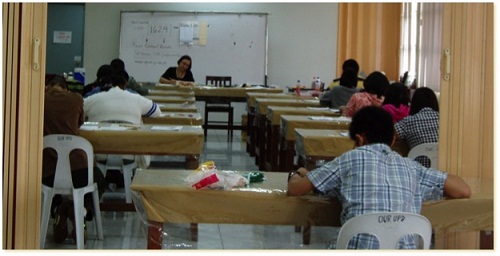
By AMER R. AMOR
IF you are a high school senior who has been preparing witty narratives to questions like “If your crush says he/she loves you, will you say you love him/her, too?” in this year’s University of the Philippines College Admission Test or UPCAT, you are in for a disappointment.
UPCAT 2014 will not have last year’s much talked about essay part, which included questions some examinees had found to be weird, amusing, and even hilarious.
The university’s Office of Admissions did not say why it was discontinuing the essay part, which was introduced last year.
At least 83,000 high school students, the biggest in UPCAT history, are taking the entrance exam this Saturday and Sunday.
The year’s exam reverts to the multiple-choice question form in four areas: Language Proficiency, Science, Mathematics and Reading Comprehension. It will also be 15 minutes shorter than last year’s four hours and 20 minutes.
Shortly after the examination was administered last year, the alleged essay questions made the rounds on social media sites. These supposedly included, “If you met an alien, what will you tell him/her?” and “What is your favorite lie?”
The hashtag #RejectedUPCATEssayQuestions instantly became the No. 1 trending topic on the microblogging site Twitter.
The university’s Office of Admissions did not confirm that these were among the questions asked.
A first year BS Physics student in UP Diliman, who is an Oblation Scholar, said she had thought all along that social issues would be asked in the essay part in last year’s UPCAT, and was “shocked” when she got the “alien encounter” question.
“For a moment or two, I just stared at the paper,” she said, laughing.
But the Oblation Scholar said what mattered in the essay part was not the content of the narratives, but the way examinees used the language and how they developed their answers.
The Oblation Scholarship is awarded to the 50 highest-scoring UPCAT passers and exempts them from paying nearly all the school fees.
“I actually found the essay question (about aliens) interesting,” said AJ John Carbonell, now a first year History student at the University of the Philippines in Baguio.
He said the question provides students the chance to express themselves when faced with “extraordinary challenges.”
Carbonell added that the essay questions required students to be not only creative, but also open-minded.
Removing the essay part from this year’s UPCAT will not make much of a difference, said the Oblation Scholar, since it was not explained to them last year what was the essay part for and how it was going to be graded.
Here are other interesting things about UPCAT 2014:
[dropcap]1[/dropcap] At least 83,000 students are expected to take this year’s exam, but only around 12,000 will make the cut. Last year, almost all the 75,000 students who applied for the exam showed up in 81 test centers around the country.
[dropcap]2[/dropcap]. Most students will take the exam on Saturday, specifically the morning session. In last year’s examination, around 43,000 students took the exam on the first day.
[dropcap]3[/dropcap] A new regional test center has been opened in Angeles City, Pampanga to accommodate the growing number of UPCAT takers. This brings the total number of regional test centers to 82.
[dropcap]4[/dropcap] Mambujao in Camiguin and Cuyo in Palawan remain the smallest test centers in terms of the number of examinees. Each had 31 examinees last year. They are projected to again host the smallest number of examinees this year.
[dropcap]5[/dropcap] A test booklet entirely produced using a Braille printer or embosser, a first in the history of UPCAT, will be used by examinees with visual impairment. The Office of Admissions has been conducting a Special UPCAT, administered to students with disabilities.
(Amer R. Amor is an UPCAT examiner. VERA Files is put out by senior journalists taking a deeper look at current issues. VERA is Latin for “true.”)


